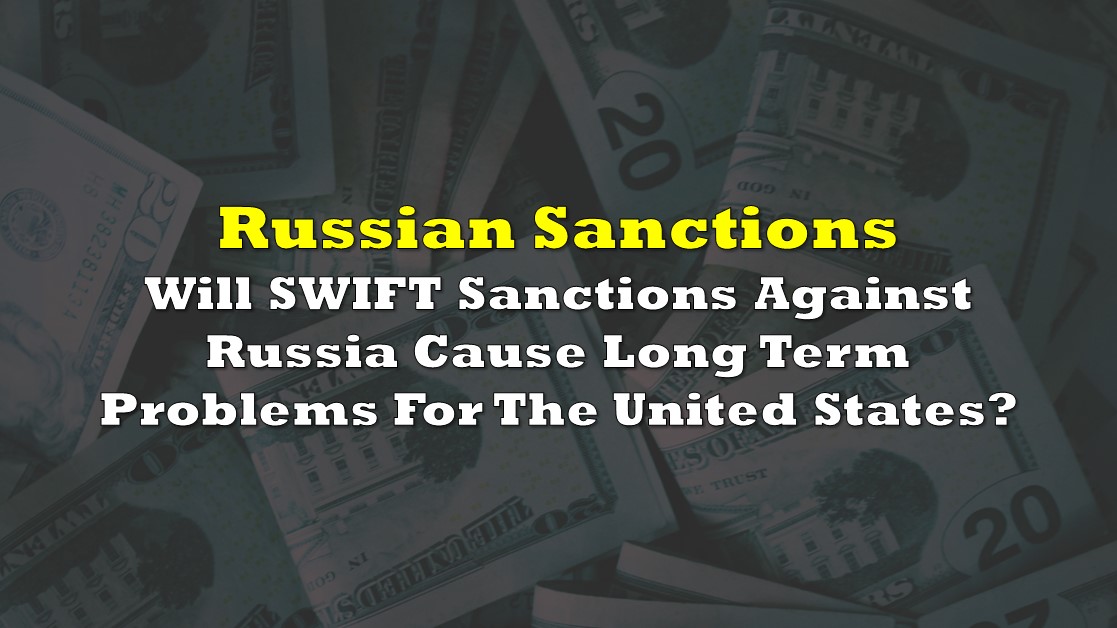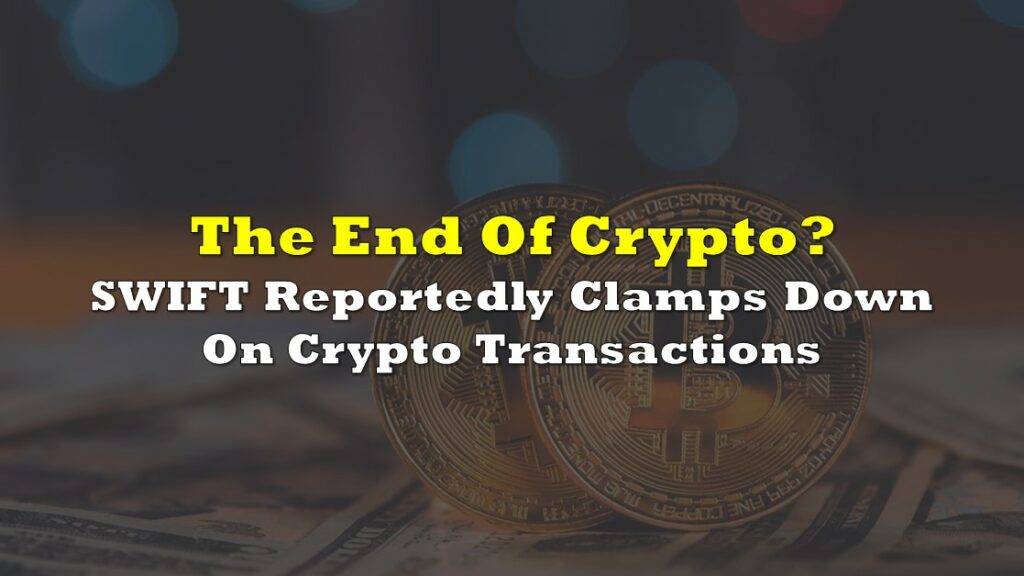Last week, essentially all major economic powers in North America, and Europe, including the U.S., the European Commission, France, Germany, Italy, the U.K., and Canada, announced they would not allow some key Russian banks to use the global SWIFT system.
SWIFT, or the Society for Worldwide Interbank Financial Communication, is the secure global messaging network through which international payments are initiated and executed. Germany reportedly was reluctant to take this step but relented after seeing the horrible pain, both human and economic, that Russia is inflicting on Ukraine.
Important to note, the SWIFT exclusion appears to spare Russia’s oil and gas exports (which explains the lack of a blanket exclusion to all Russian banks). Including those exports would have a punitive impact on Russia’s economy, as more than 50% of Russian government revenues trace to fossil fuel exports. But since Russia would not be able to be paid for its gas exports under such a scenario — likely causing Moscow to shut them off — and Russian gas exports provide about 40% of Europe’s total gas consumption, European gas prices would likely soar, hitting Europe’s economies very hard.
Clearly, Russia’s economy will be hurt by the West’s February 27 actions, but the actions could have two unintended long-term consequences, neither of which would be positive for the U.S. and the strength of the U.S. dollar.
First, more than 11,000 financial institutions in 200+ countries utilize SWIFT to communicate payments and securities transfers. The hard truth is that since a very large percentage of transactions are settled in U.S. dollars, this perpetuates the U.S. dollar as the global reserve currency. Such status allows the U.S. government to borrow at lower interest rates than would be otherwise merited, and to exert more influence on global monetary policy than perhaps it should.
It is possible that pushing Russian banks off SWIFT could serve as a sort of catalyst for the rest of the world to band together to establish a less U.S.-centric SWIFT equivalent. Indeed, Russia and China have each established far less utilized competitor systems. (China’s CIPS system is only about 0.3% as big as SWIFT; Russia’s system is even smaller.) Even the EU has developed the INSTEX system, which is used only for humanitarian trade payments allowed by U.S. sanctions.
Second, Ripple Labs, a private company which has developed a blockchain technology platform, has proclaimed for some time that a system based on distributed blockchain technology has the potential over the long run to revolutionize the international remittance industry. It believes such a system could be much faster and cheaper than SWIFT.
Taking this a bit further, El Salvador’s September 2021 decision to adopt Bitcoin as legal tender — particularly if it proves successful, a big if — could help to hasten a replacement of SWIFT with blockchain technology. If this were to happen, digital currencies like Ethereum and Bitcoin would likely receive a substantial boost in worldwide acceptance and in value.
In turn, a weaker U.S. dollar presumably would be the flip side, or loser, in that trade.
Information for this briefing was found via Edgar and the companies mentioned. The author has no securities or affiliations related to this organization. Views expressed within are solely that of the author. Not a recommendation to buy or sell. Always do additional research and consult a professional before purchasing a security. The author holds no licenses.









